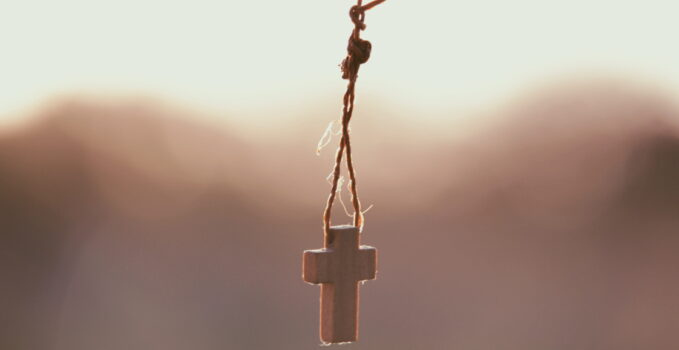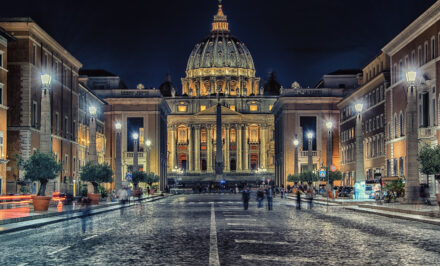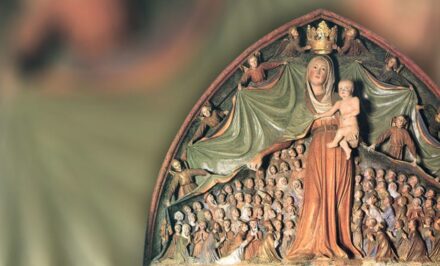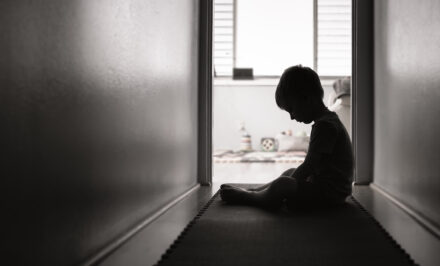CHILE, P. Juan Pablo Rovegno •
But “I will see thy face in righteousness, I will be satisfied with thy form when I awaken,” sings the antiphon of the psalm this Sunday. The awakening of Chile was at the centre of the news, the “hopes and fears, joys and sorrows” of these days. —
An awakening that presents us with (at least) three spiritual dimensions with concrete consequences:
Awakening to hope for a fairer, more solidary and more fraternal Chile, a wake-up call to legitimate needs, always postponed and made invisible to so many realities which today find peaceful expressions and possibilities of realization. We see that this awakening has awakened us and many social actors from sleepiness, indifference and well-being. Possible responses and proposals are already in sight.
Awakening also to insecurity, through a process that still does not find final channels of communication, nor encounters based on trust and mutual co-responsibility, complementarity and cooperation. There are still suspicions, prejudices, fears, polarizations and many interests. This makes us very insecure.
They also awaken to pain, anger and fear through a virulent and destructive violence of organized and anarchic groups that not only destroy public goods and spaces, but also damage the national soul in its monuments and patriotic symbols and, even more painfully, our sacred spaces and symbols. We see with concern an overburdened, denigrated and oppressed public authority that evokes a feeling of helplessness and great impotence. The aggression against others, whoever it is, hurts.
An old world is burning
But we are men and women of hope. Times of change are times of hope: an old world is falling apart so that a new world can emerge. There are things that have had to change, and each of us is going through a process of assimilation and acceptance of this reality, the realization of this reality.
This week was celebrated the 30th anniversary of the fall of the Berlin Wall, symbol of a totalitarianism without God that has caused so much pain and damage.
An old world fell with the wall. Perhaps today we are witnesses of a new fall of the Wall and even have the opportunity to be protagonists of change in the balance of power, because capitalism without God also leads to the downfall of man and community. Totalitarianism and capitalism without God and without reference to one’s neighbour are therefore doomed to failure.
If we deify the State or the market, we must be ready to accept its fractures and weaknesses, because the State and the economy are not ends in themselves, but are at the service of human abundance and development, of all and not just some, for the common good and the individual good. Neither man without name and freedom, which corresponds to totalitarianism, nor man subject to consumption and performance, which corresponds to capitalism, has a future.
We are witnesses and possibly protagonists of an epochal change that challenges us to a new cosmos vision, to an understanding of reality and the challenges of reality. But it is still a process of development, we are still trying to understand what happened, its causes and consequences, there are still opposing forces that create insecurity and paralyze the opportunity.
As with the tectonic plates that collide from time to time and then release all the accumulated energies (and we have enough experience because of our history and telluric geography), releasing energies that rearrange everything and others that destroy everything, we perceive with pain and surprise that there was a lot of frustration and accumulated needs that did not find timely spaces for visualization and resolution. Today we have the opportunity to transform these energies into something new and good for all.
What we are experiencing is an opportunity for a new conversion, personal and collective, with social consequences.
For this reason, we cannot be indifferent to this epochal change with concrete consequences for our lives; we cannot only be witnesses of hope or destruction, but also protagonists of a new world. What we experience is an opportunity for a new conversion, personal and collective, with social consequences.
And for us change and conversion go by updating the words, gestures and attitudes of Jesus and our response from them. If we are protagonists, we make it possible for the changes that are set in motion or seek channels of expression and realization to find ways and possibilities of encounter and abundance in the Gospel and in the Church’s social teaching.
Let us be inspired in this perspective by the readings (23rd Sunday of the year):
Jesus invites us to participate in shaping change
The Gospel (Lk 20:27-38) describes a dialogue of Jesus with a Sadducean group on the subject of resurrection. The Sadducees were a privileged group and in the question they asked (which always surprises us and makes us laugh because of the possibility of a widow of seven deceased husbands) they want to find out in response that the state of the Risen One does not change things and we remain the same as always. Jesus lets them know that it will be a new state and a new order, a new connectedness. Things will change.
We would like everything to go on as it is, that would give us security, but Jesus invites us to cooperate so that this change, which is definitely coming, becomes the best and most appropriate.
To deny that something is changing would mean to put oneself in the sadducee stubbornness and impossibility of cooperation, so that this process of change finds channels and answers that are realistic and possible, answers that take up concerns and respond to real needs and possibilities. A cooperative, co-responsible and complementary attitude is fundamental, and requires generosity and openness.
We believe in a God who intervenes in history.
In order for this openness and availability to be possible, we need a visionary gaze of faith: how often in the history of salvation and humanity has God shown us that he intervenes? He is in our midst and wants us to make him the protagonist of this change. This certainty gives us confidence and calms our fears.
We believe in a God who intervenes in history and in every event of history. In this sense, Saint Paul encourages us not to lose courage or be discouraged: “Brothers! But Jesus Christ our Lord and God our Father, who turned his love towards us and in his grace gave us eternal comfort and sure hope, comfort you and give you strength for every good work and word”.
They are words of hope, but this hope is consciously nurtured: in discovering the signs of life in the midst of so much chaos, so much confusion and insecurity: dialogue, encounter, agreements, collaboration, processes and above all, as Saint Paul says, “good words and deeds”. God’s guidance needs and demands our participation. Today we face the challenge (which we could not imagine a month ago) of participating in a new world.
We live a time in which we must realize and embody what our faith means in words, works and concrete projects.
It is also a time of deepening our faith: it is a time of conversion, so that Jesus can inspire us anew, unite us and raise us up. A possibility for him to teach us: with his words, gestures and attitudes, the type of society and the relationships we need to build.
In this sense the reading of the Maccabees’ book is impressive: “King Antiochus sent an Athenian adviser to force the Jews to abandon the customs of their parents and not to live according to the laws of God”.
We live a time in which we can realize and embody what our faith means in words, works and concrete projects, in the Christian vision of man and community, in the sense of justice and freedom, in the love of neighbour and in the transcendent sense of life. It is time to overcome so many prejudices, so many hardships and so much egoism…..
Isn’t it time that our children look at life and people in an integrative way, recognize the dignity of each individual, and overcome those unfortunate categories that do us no good (snob rabble, neighborhood, school, last name… for example), those labels and classifications that separate and divide us, categorize and distance us?
Is it not time for young people to stop thinking only about their personal projects, about a safe life together with those with whom they have always been together, and to give their lives the meaning of a project for others, to see service to the common good as an alternative and to discover the social meaning of life and work as an essential category?
Isn’t it a chance for women to become more present in all spheres of life and to teach men to look properly and empathize, not only at results, but also at people, processes and reality (how many situations would have been approached differently if women had demanded that their view count)?
Is this not an opportunity for men, who are in the majority of decision-making and leadership spaces, to learn to lead more integratively, to put aside the fascination for success, autonomy and competitiveness, to learn to work more collaboratively and humbly accept the value of complementarity?
Is it not an opportunity for all of us to be Church (when hierarchy and priests have only minimal authority) and to contribute the Christian view of man and society, economy and work, education and civilization?
Dear brothers and sisters, Chile has woken up. It depends on each one of us that it is not just a bad nightmare that we want to forget, or the impossible dream of an ideal world. A better Chile depends on each of us.
Original: Spanish. Translation: Lindsay Burger, Ohio, USA














